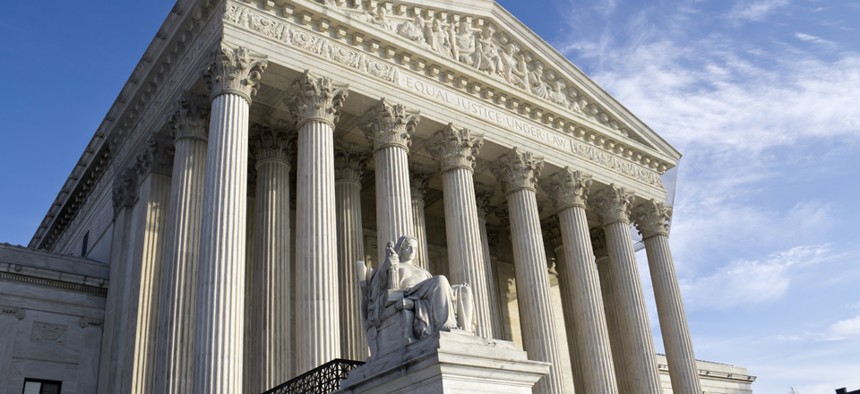
Mesut Dogan/Shutterstock.com
High Court Rules Public Workers Can Testify
Alabama college case could help federal whistleblowers, experts say.
The Supreme Court ruled on Thursday that government workers who speak out on issues beyond their own disciplines are protected against employer retaliation, a decision that encouraged advocates for federal whistleblowers.
The case -- Lane v. Franks -- involved Edward Lane, a youth program director at a community college in Alabama, who was fired by college president Steve Franks after he testified in a public corruption trial involving a state legislator on the college payroll who performed no work. Lane fired the legislator, Suzanne Schmitz, and she is now serving a prison sentence, according to a dispatch in The New York Times.
But Lane himself was subsequently fired by Franks. The college president claimed the termination was a financial decision, but Lane sued, saying his First Amendment rights to testify as a citizen were violated.
“Almost 50 years ago, this court declared that citizens do not surrender their First Amendment rights by accepting public employment,” wrote Associate Justice Sonya Sotomayor in the unanimous ruling on competing lower court verdicts. “Rather, the First Amendment protection of a public employee’s speech depends on a careful balance ‘between the interests of the [employee], as a citizen, in commenting upon matters of public concern and the interest of the state, as an employer, in promoting the efficiency of the public services it performs through its employees.’ ”
The Washington-based Government Accountability Project, which had filed a friend-of-the-court brief on Lane’s side, welcomed the outcome on Friday.
“All whistleblowers should be grateful that the Supreme Court recognized their indispensable role making a difference,” GAP Legal Director Tom Devine said. “If not for Mr. Lane, [Alabama] taxpayers [might] still be paying a so-called employee not to work. The court restored rights to state government workers that Congress already reinforced for federal employees in the Whistleblower Protection Enhancement Act of 2012. The decision should be applied to all contexts where public employees bear witness by testifying under oath.”
R. Scott Oswald, a whistleblower attorney and managing principal at The Employment Law Group in Washington, told Government Executive there is significance to the fact that the ruling “draws its lineage” back to the 1968 case of Pickering v. Board of Ed. of Township High School Dist. 205, Will Cty. and not to the 2006 decision in Garcetti v. Ceballos. Sotomayor “rebalances the analysis” in a way that the practical effect on public employees, Oswald said, “is going to encourage them to cooperate in investigations and not feel as if they have to put their livelihoods on the line to the extent they’re doing their civic duty and answering truthfully in official proceedings.”
The critical question is whether the speech is organically in the scope of their duties, not whether it simply concerns those duties, he added. “Under the previous formulation, anything derived or learned on the job could not constitute private speech.”
Oswald said he sees the ruling as “important legally and psychologically for government employees” in letting them feel they’re more likely to be protected in a host of situations, while giving pause to managers who might have had a tendency to retaliate.
(Image via Mesut Dogan/Shutterstock.com)







